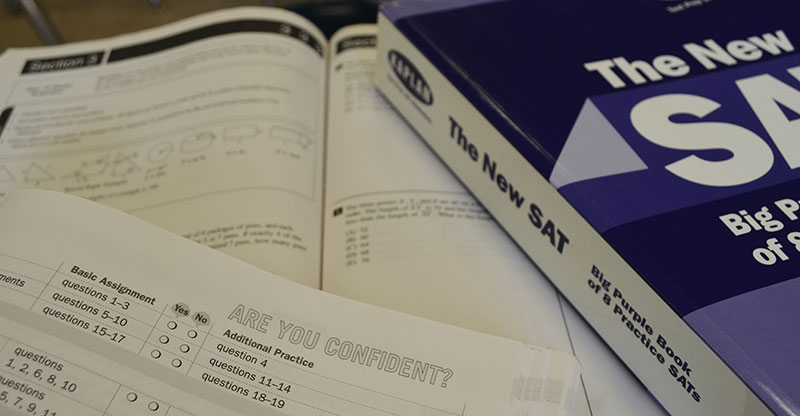Preparing for the SAT Reasoning Test is one of the most draining experiences a student will undergo. Many choose to study and memorize various antiquated or rarely-used vocabulary words in anticipation of the critical reading section and enroll in tutoring and coaching courses that could cost hundreds or even thousands of dollars.
On March 5, however, College Board President and CEO David Coleman announced that the SAT would undergo major revisions, making it the second revamp in the past decade. Along with the changes to the exam, College Board also announced that it would be partnering with Khan Academy to provide free preparation materials for the redesigned SAT.
“What this country needs is not more tests, but more opportunities,” Coleman said at an announcement event in Austin, Texas. “The real news… is not just the redesigned SAT, but the College Board’s renewed commitment to delivering opportunity.”
Specifically, the new SAT will remove vocabulary that students may not have heard of and are not likely to hear of again. Moreover, the exam will be nearly twice as long, lasting three hours as opposed to the current length of one hour and 45 minutes, and penalties for guessing incorrectly have been scrapped.
According to the announcement, the modifications are “modeled after work that students do in challenging high school courses” and are designed to focus more on college readiness.
“That’s what the SAT is trying to change, at least on the surface,” guidance department chairman Mr. Paul Weber said. “It won’t be as coachable, and it’ll be more about what you’ve learned in school and how hard you’ve worked, not how hard you’ve been coached on the side.”
Educators and college admissions officers believe that the overhaul is long overdue, and that the renewed focus on students’ skill, rather than ability to take the test, is a welcome change.
“Making the test more relevant to the high school curriculum makes sense,” Courtney McAnuff, Vice President of Admissions for Rutgers University, told The Star-Ledger. “In addition, I applaud the College Board for acknowledging that lower income students were underserved and typically could not gain the advantage of intensive and costly private coaching.”
On the other hand, some critics believe the revisions are motivated by competition with the ACT, which surpassed the SAT for total test takers in 2011. Others believe that standardized aptitude tests in general are obsolete, and that new methods of testing college readiness are needed.
“Why not give students the time to think, research, and learn as they answer serious questions whose answers demand careful thought and knowledge?” TIME writer Leon Botstein said. “What is needed is not minor, so-called improvements to the SAT, but an entirely new generation of testing instruments.”
Regardless of what changes the SAT undergoes in the future, the test and others like it will continue to be a key component of the college admissions process. The uniform nature of the exam for all students who take it allows colleges to easily weigh decisions based on the relative success of each applicant on the standardized assessment.
“Everybody, whether you’re in California, Maine… or New York, is taking the exact same exam,” Mr. Weber said. “Regardless of what they do to [the SAT], everyone is on the same playing field.”
It will be several years before the revised SAT is publicly administered, and so until then, the impact that the changes will have on test preparation, college admissions and student preparedness are anyone’s guess. Still, a more focused and relevant SAT would not only help the College Board compete with the ACT, but also give students, parents and counselors a clearer picture of one’s ability to succeed in college.


